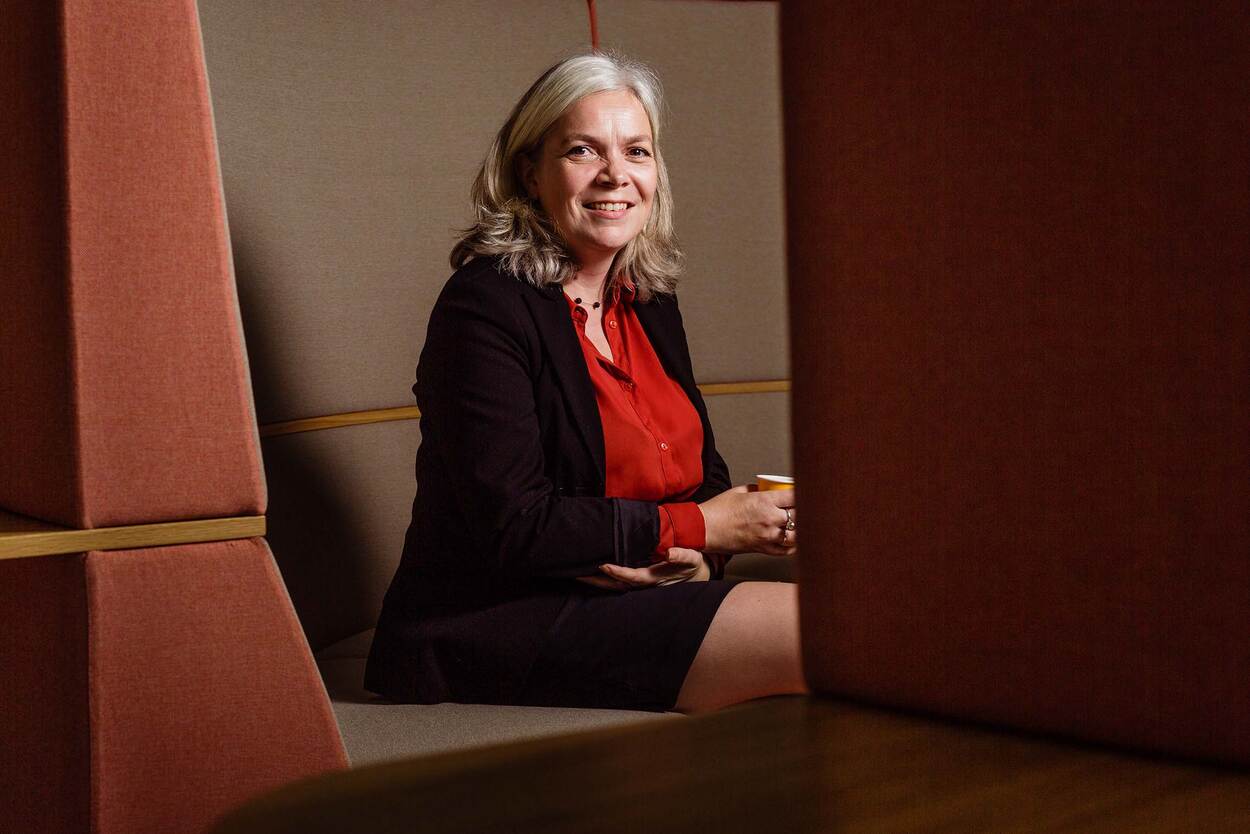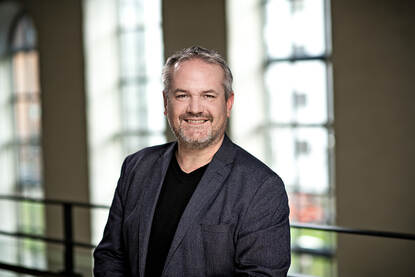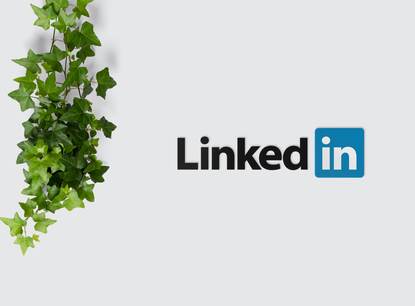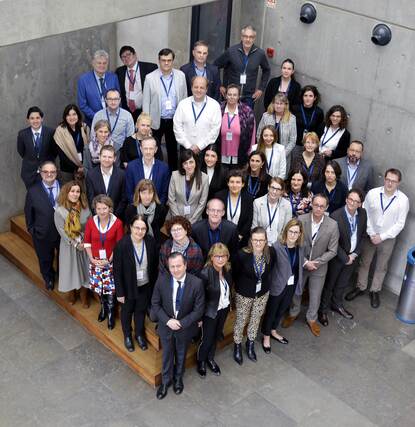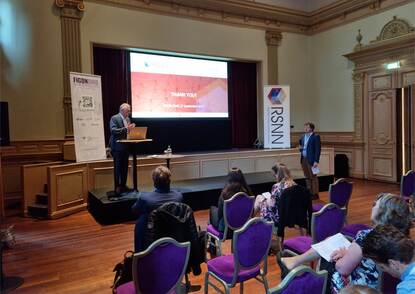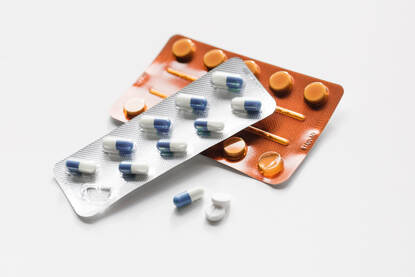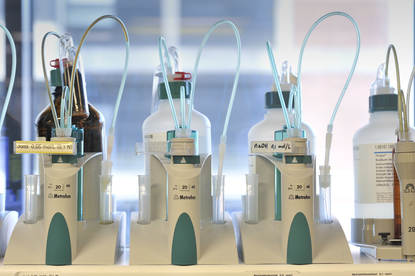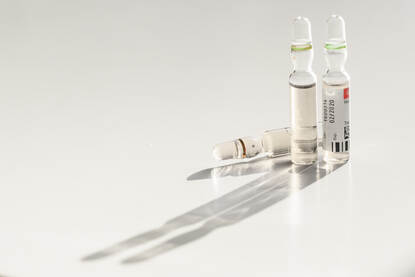In November 2020, Marieke De Bruin was appointed professor in Drug Regulatory Science at Utrecht University. Her mission is to improve the health of the society by designing new tools that improve the drug regulatory system.
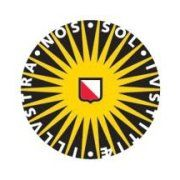
Accepting the chair in Utrecht brought Marieke back home. “I’ve studied pharmacy on this campus ánd I’ve worked as an assessor at the Dutch Medicines Evaluation Board (MEB), which is also situated in Utrecht”, Marieke explains her move from Denmark back to Utrecht. At the University of Copenhagen, she has been a professor of Regulatory Science.
“The safety of medicines is something that always was and will remain a topic close to my heart. I’ve specialized in pharmacoepidemiology and have always been interested in adverse effects and pharmacovigilance. Helping to improve public health is what motivates me. A better drug regulatory system plays a vital role in this. We need to systematically study the system and it’s behaviour. And we should conduct research into new tools to facilitate regulatory decision-making.”
To truly improve the regulatory system, collaboration between academic institutes and authorities is essential. “For a number of reasons”, Marieke explains. “It forces all of us to leave our ivory towers. To see how things function in other areas. It’s also really necessary to understand the processes and the international dynamics, for instance at a European level.”
Hands-on experience
Because of this, Marieke cherishes the fact that she has been in regulatory functions herself. “Working as a pharmacovigilance assessor at the MEB and as an independent expert in the Pharmacovigilance Risk Assessment Committee (PRAC) of the European Medicines Agency gave me both hands-on experience as well as insights and theoretical backgrounds on the functioning of the regulatory system.”
How does academic research contribute? Marieke gives an example on work done in Copenhagen on the European Paediatric Regulation. “That legislation was introduced late 2006 to increase the number of medicines that are studied in children. Since most new medicines are tested in adults, healthcare professionals often treat children with medicines that lack information on safety efficacy, dosage and so on. Off-label use, with all the difficulties that arise with that phenomenon.”
The Paediatric Regulation requires pharmaceutical companies to study new medicines in children. “We studied the results in the first decade of that regulation and compared the results to the US, where legislation in this area was in effect sooner and in a different way. The goal of the project was to provide insights in the effectiveness of this regulation and to communicate this back to the policy makers.”
Data mindset
Besides improving the regulatory system, which Marieke focuses on, she also has a ‘data mindset’, as she calls it herself. “Pharmacoepidemiology is about doing statistical analysis on large numbers of data. We take data from pharmacies, hospitals and doctors, and search for patterns. We work on designing and improving methods to create valuable knowledge and information from that data.”
Lots of valuable data is available in the systems of the European Medicines Agency and the national medicines authorities in Europe, like the MEB. “Wouldn’t it be wonderful if we were able to mine this data for patterns, to create new information on effects medicines have, but also on the way regulatory processes function? Theoretically it’s possible to create algorithms and programs to do that. We’re very aware about the drawbacks and challenges that come with the use of that data, but it still could be very useful.”
The gold is in the metadata
It’s not single case information that pharmacoepidemiologists are interested in. Marieke: “We want to look at the bigger picture. It’s the metadata from all the regulatory dossiers that carry the gold. Dashboards with the larger scale data, that show peaks and signals. If academics and national authorities can work together to unlock that information in a controlled manner, it would be fantastic. On several levels we are already discussing possibilities.”
Marieke sees a bright future. “Machine learning might be able to help and automate those complex data mining processes. That would allow us to automatically code files, taking away big current issues like the problems of privacy, personal information, confidentiality and proprietary issues.” Marieke and colleagues collaborate with researches from the department of Data Science. “They help us by providing their non-pharma related perspective on data. Some Applied Data Science MSc students are already working on this topic, comparing machine based algorithms to the gold standard of hand picked information. It’s a promising start but there’s still work to be done. In addition, colleagues from Utrecht University are collaborating with the MEB to establish a dashboard to visualize Centralised Product characteristics and dynamics.”
Collaboration is key
Whether be it machine learning or other innovative methods to extract information from data sources: it all starts with having access and be in touch with each other. Collaboration is key. “For academic groups and researchers that want to improve regulatory processes it’s of course essential to see and understand processes to be able to think of solutions for improving them. In my past I’ve combined my academic research with functions in the regulatory field. At the moment I don’t do that anymore, but that makes collaboration even more important to me.”
A beautiful example of that collaboration is a new position in De Bruin’s group. “We’ve recently published a job opening for a PhD student in pharmacovigilance in a combined track with the MEB. The student will work at the MEB, where he or she will be trained as a pharmacovigilance assessor, next to a PhD project here at our department. The project involves additional risk minimisation measures and the effect they have on reducing side effects. The student will focus on the needs of patients and how healthcare professionals use them. Part of the research is to determine what problems they run into in their daily practice. That knowledge – from outside our ivory tower – is valuable to be brought back into the regulatory everyday practice.”
Data usage in Denmark
Her view on data and her views on collaborating across the silos might stem from her time in Denmark, where she led the Copenhagen Centre for Regulatory Science. What makes the Danish regulatory field different from the Netherlands? ‘Data’ collection and usage is very common in Denmark. “Not just for healthcare goals, but also for research and what I call the ‘greater good’, of improving public health.”
Danish legislation is different in the area of data collection, but according to De Bruin it’s also rooted in the national culture. “Danish people seem less individually focused. For the greater good of the group, information is bundled. It’s very deep in their culture.”
As a result, there are a lot of initiatives in Denmark like the Data Analytics Centre of the Danish Medicines Agency (also see the interview with Jesper Kjær, ed.). “That’s not just a matter of data, it’s also mindset.”
Step out of your silo
Besides that, Marieke doesn’t see big differences between Denmark and The Netherlands on a regulatory field. One thing she does notice is that collaboration between regulatory bodies, academic world and industry seems to be a lot easier. “It’s quite common for scholars and researchers to ‘hop’ from a position in the academic world to a job in the pharmaceutical industry, and vice versa. And also from and to positions in the medicines agency.” Why is that? “Probably because it’s a relatively small country and a small population. But that brings a big advantage: it’s easier to step out of your silo and look beyond your boundaries. Off course it’s important to keep an eye on conflicting interests, but it does help to create mutual understanding and to reduce fear.”
The same goes for supervision of PhD projects. “In Denmark, it’s quite common for PhD students to have both an academic and an industrial supervisor, also in the field of regulatory sciences. You don’t see that a lot here, except for projects from the Innovative Medicines Initiative (IMI) (a public-private partnerships aiming to speed up the development of better and safer medicines for patients, ed.). Again, this broadens the perspective of the PhD students ánd their supervisors.”
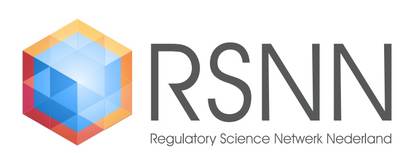
Open mindset
In the Netherlands, the Regulatory Science Network Netherlands (RSNN) fills the need for collaboration and discussion. “The RSNN is a great way of bringing these stakeholders closer together. That is quite unique in Europe in its own way”, says Marieke. And it goes well with what Marieke would like to bring from Denmark. “The open mindset. In regard to use of data, but also towards stakeholders from other backgrounds. The RSNN-network is a great opportunity and we are making use of it, in organizing discussions and debates, for instance. A good start in opening up to each other, in order to work towards better regulatory process and in the end to improve public health.”
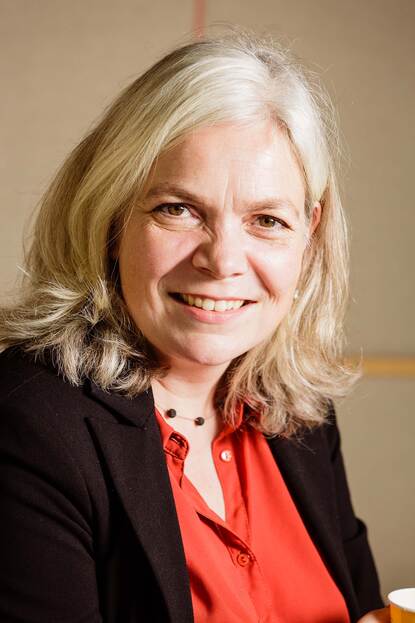
Prof. Marieke De Bruin
Marieke De Bruin is a professor in Drug Regulatory Science at Utrecht University and scientific director of the Utrecht Centre for Pharmaceutical Policy and Regulation. She is a pharmacist and holds a PhD in Pharmaceutical Sciences (Utrecht University) and an MSc in Clinical Epidemiology (Erasmus University Rotterdam).
Before she was appointed professor in at Utrecht University in November 2020, she was a professor of Regulatory Science at the University of Copenhagen and assistant professor of Pharmacoepidemiology in Utrecht.
Besides her academic research she has worked for the Medicines Evaluation Board as a pharmacovigilance expert and as an independent expert in the Pharmacovigilance Risk Assessment Committee (PRAC) of the European Medicines Agency.
